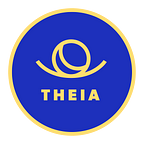Making Milk: The Founding of BIOMILQ and Dr. Strickland’s Journey to Create the World’s First Cell-Cultured Human Milk
Our team at Theia recently spoke with Dr. Leila Strickland, the Co-Founder and Chief Scientific Officer of BIOMILQ. BIOMILQ is a women-owned, science-led, and parent-centered infant nutrition company based in Durham, North Carolina. With her co-founder, Michelle Egger, Dr. Strickland is disrupting the $45 billion infant formula market through culturing mammary gland cells in a lab — effectively farming them outside the body and then collecting the milk they secrete. The company calls it “the mother of all patented technology.” Despite its recent formation in January 2020, BIOMILQ has caught the eye of Bill Gates, who bought a $3.5 million stake in June, and Breakthrough Energy Ventures, composed of investors such as Jeff Bezos, Mark Zuckerberg, Jack Ma, and Michael Bloomberg. Dr. Strickland received her PhD in cellular biology from Boston College, and her undergraduate degree from University of Colorado-Boulder.
How BIOMILQ came to be
“I was my own first-customer”
In 2009, Dr. Strickland had her first child and was finishing up her postdoctoral program. She was thinking of a new career and was interested in cell culture specifically as a biomedical research model. It was her own experiences that initially inspired the idea and initial rationale behind the possibility of using cell culture to make food products, and editing scientific papers from a lot of people and was exposed to much wider breath or research than before.
The creation of the first hamburger fashioned out of cultured cells in 2013 by Mark Post, and her own personal struggle with lactation during this time really inspired Dr. Strickland to pursue mammary biotechnology. After witnessing and learning about this technology being utilized to create this hamburger, and dealing with her own frustration and struggles with breastfeeding, Dr. Strickland bought a small lab space and the basic equipment to initiate the growth of mammary nepophilia cells. Limited in resources, she would go out to the slaughter house to get tissue from bovine udders, and from 2013–2016, she played around with these cells and explored how to manipulate them, the next step being to figure out how to transfer this into a business. She took a full time position in 2016 as a medical writer for a scientific communications company and from there she learned a lot about what she had been missing in the initial idea. In 2019, encouraged by friends, she decided to look into the technology deeper and really dive into her company!
Flash forward to June 1 2021, BIOMILK announced that they successfully made the world’s first cell-cultured human milk from mammary cells outside of the breast!
Meeting Your Co-Founder
“You need to find other people who share your vision, share your passion, and can bring skills that you don’t have.”
In the very early stages of BIOMILQ, Dr. Strickland was almost completely on her own. For the most part, at this time her background in cell biology was adequate enough, but as personal discoveries and technology progressed she realized that she would need to bring in others with different skill sets to really make this company happen. She and two other cell biologists decided to try and move forward with the company and found it difficult to do so because of their overlapping skill sets — “We had massive gaps and deficits in what we knew how to do. We found the process of creating the company (to be) really overwhelming and stopped us in our tracks pretty quickly.” A mutual friend of the two had previously introduced Dr. Stickland and her co-founder, Michelle Egger, and after talking more they both realized their overlapping interests yet different skill sets fostered the perfect co-founder relationship. Because of this, Dr. Strickland advises other early-stage startups to constantly keep inventory of what skills they have and will need in order to be successful.
The future of BIOMILQ and mammary biotechnology
Dr. Strickland’s main objective for this product is to get it into the bellies of every baby who needs it. In the developed world this product can have a major impact on working mothers as so many workplaces are just not supportive enough of infant feeding. She emphasizes that breastfeeding is sometimes hardly an option for some working mothers going from job to job because of lack of time and access to a place to pump breast milk. Dr. Strickland highlights accessibility as the main goal for BIOMILQ, along with the ability to accomplish this at a feasible and attainable cost.
As for the future of mammary biotechnology and more generally regenerative medicine, Dr. Strickland concludes that it is essential to pursue these technologies. “As we understand cell behavior at increasing complex depths, I think we will have an increased ability to resolve diseases and suffering for people and that, to me, is an ethical imperative that we pursue those technologies.”
Theia is a nonprofit dedicated to inspiring and empowering the next generation of entrepreneurs and investors in healthcare. Check out our website to learn more.
Story written by Katie Donahey
